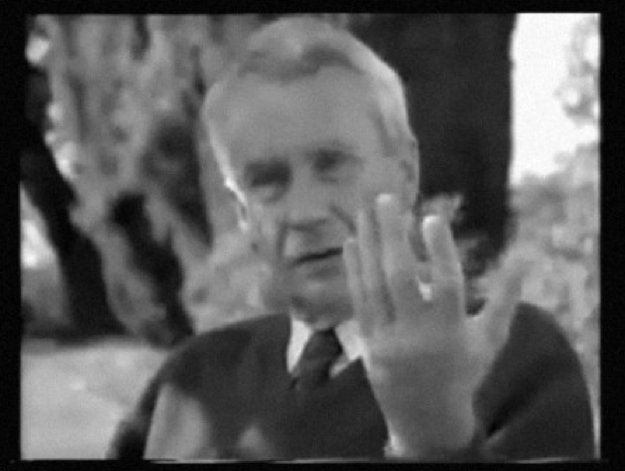
It’s a rare, if not exceptional, case. In an era where most people would sell their souls to be talked about, Christopher Tolkien has not expressed himself in the media for 40 years. No interviews, no announcements, no meetings — nothing.
It was a decision he made at the death of his father, John Ronald Reuel Tolkien (1892-1973), British author of the hugely famous Lord of the Rings (three volumes published in 1954 and 1955), and one of the world’s most-read writers, with some 150 million books sold and translations into 60 languages.
Was this long-held public silence simply a whim? Certainly not. The 87-year-old son of the great J.R.R. Tolkien is the calmest man imaginable. A distinguished Englishman with quite an upper class accent, who settled in the south of France in 1975 with his wife Baillie and their two children. Has he kept mum because he does not care? Even less likely. During all these years of silence, his life has been one of incessant, driven, almost Herculean work on the unpublished part of his father’s oeuvre, of which he is the literary executor.
The “money quote” that’s been going around from this first interview ever by Christopher Tolkien, his father’s literary executor, is this one, which lends the article its title (“My Father’s “Eviscerated” Work – Son Of Hobbit Scribe J.R.R. Tolkien Finally Speaks Out”):
Invited to meet Peter Jackson, the Tolkien family preferred not to. Why? “They eviscerated the book by making it an action movie for young people aged 15 to 25,” Christopher says regretfully. “And it seems that The Hobbit will be the same kind of film.”
This divorce has been systematically driven by the logic of Hollywood. “Tolkien has become a monster, devoured by his own popularity and absorbed into the absurdity of our time,” Christopher Tolkien observes sadly. “The chasm between the beauty and seriousness of the work, and what it has become, has overwhelmed me. The commercialization has reduced the aesthetic and philosophical impact of the creation to nothing. There is only one solution for me: to turn my head away.”
The headline is somewhat misleading, since the bulk of the article is really just about the enormous place of Christopher Tolkien in his father’s legacy. That said, I can appreciate his family’s unhappiness with the popularization of that legacy in film, though my own sense of it is that it has served to introduce more folks to the “real” thing in the canonical Tolkien works. After all, there have been mondo-gigantic boosts to book sales following the release of the films. More people are reading Tolkien than ever. And that is an encouraging thought.

It seems as though he feels that his family’s pearls have been given to swine, does it not? I’d say he’s got something there, as almost everyone who reads the book after having seen the movie will picture the movie’s actors in their heads as the characters in the book. I think he will get some sort of vindication however, though perhaps not during his lifetime. I say that because I don’t think the movies will age well, and at least for me have become almost unwatchable, to the point that eventually they will remain in the dust.
Fr. Farley had a blog column recently in which, while he says overall The Hobbit was a good movie, it was disappointing to see how characters achieve resolution through violence, specifically in scene adaptations of portions of the book where violence was nonexistant.